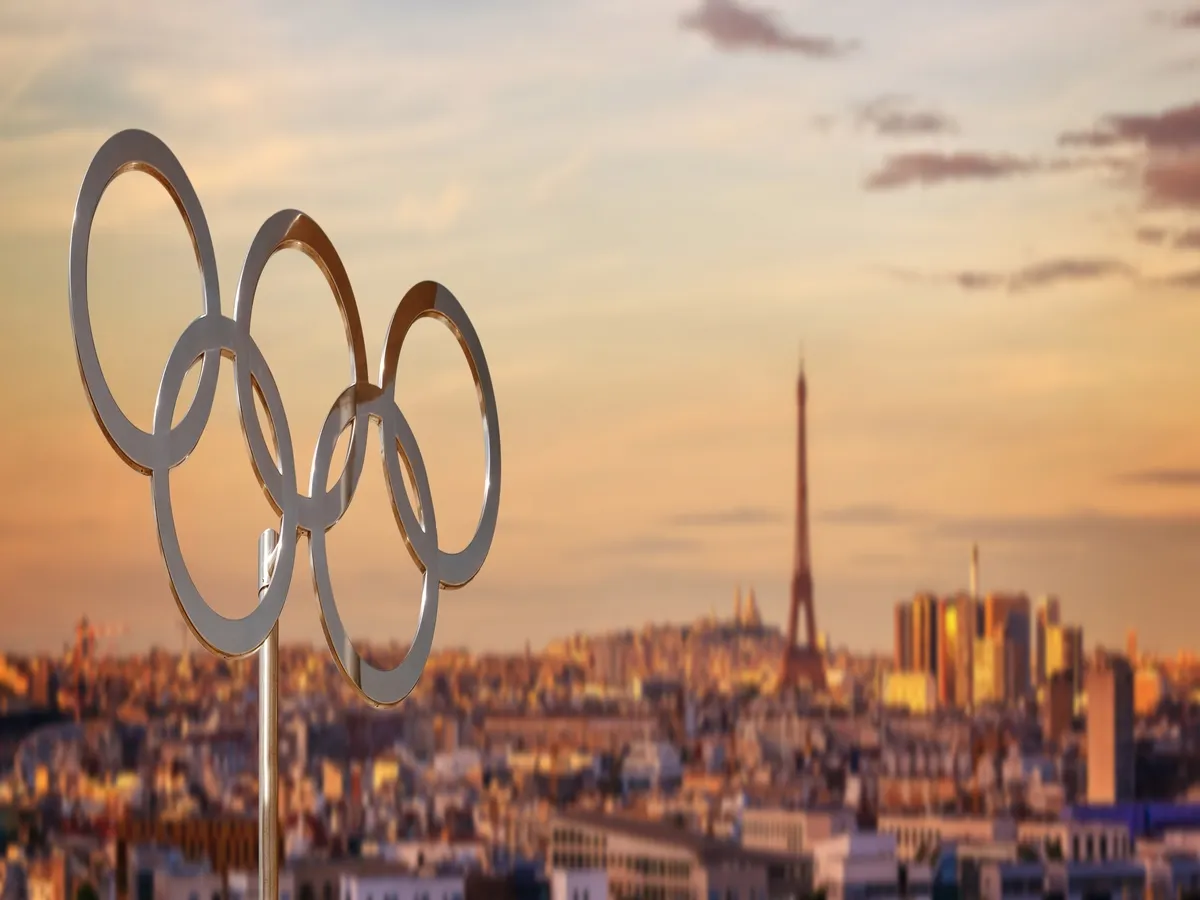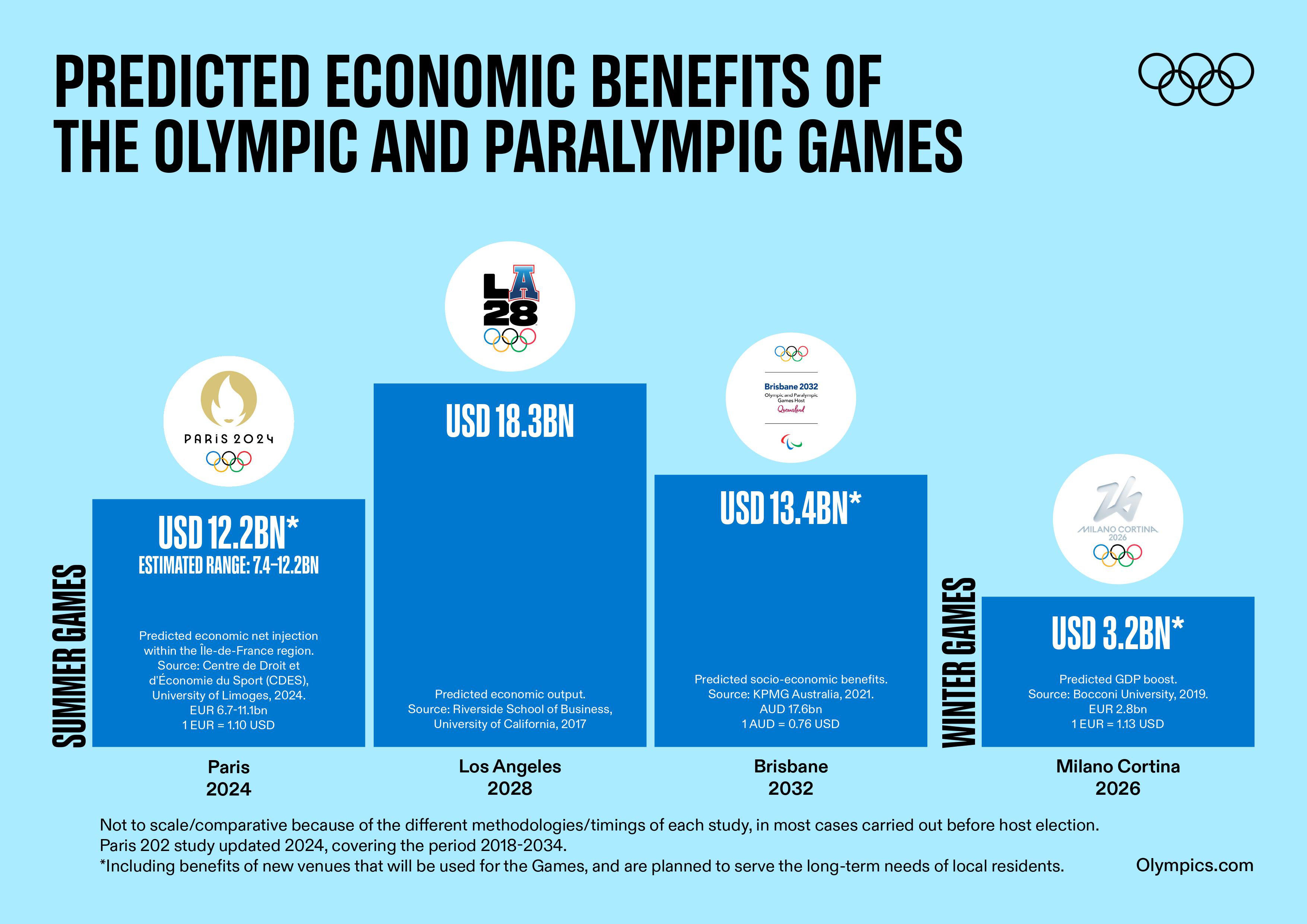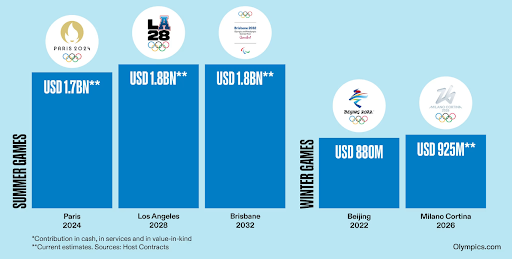Business News
Beyond the podium: The economic impact of the Olympic Games

4 min read | Updated on July 26, 2024, 13:31 IST
SUMMARY
An event of the magnitude of the Olympics requires mammoth finances. How do the host region and IOC divide the economic responsibilities? What returns do they get from the Games-related investments?

Cost of Olympic Games
'Ghost’ to ‘Gorgeous’: Olympics’ Parisian makeover
Three years ago, in 2021, the Olympic Games held in the Japanese capital Tokyo were labelled ‘Ghost Games’. The Covid-19 pandemic confined the world's biggest sporting spectacle to closed doors. The biggest athletes competed for the ultimate glory with no fans in the stands, cheered by fake pre-recorded claps and AI-made chants.
However, the script for the Paris Olympics has changed dramatically. The world’s “love capital” is all set to host the games in dream-like settings. Right from a picturesque opening ceremony at the River Seine to the iconic monuments — the Eiffel Tower, Grand Palais, Invalides and Place de la Concorde — transforming into playgrounds, the Paris Games look stunning, just like the city itself!
As the romance in the air of Paris gets elbowed by the rumble of sports fans, what does the city set to gain from it? What will the victorious athletes win apart from the shiny medals and accolades? Let’s break down the economics of the Olympic Games.
Economic benefits of hosting Olympic Games
Apart from the opportunity to attain global prestige, the host city can generate an array of economic benefits, though that claim is contested by many. From job creation boosting tourism to fostering healthy diplomatic relations, the gains are both economic and socio-political, potentially outweighing Games-related investments, the IOC believes.

An event of this scale requires money. But who bears this cost? The host region (or city) or the International Olympic Committee (IOC). The answer is both.
The Olympic Games budget has two main components:
Under this, the IOC gives financial support to the Organising Committees for the Olympics. These funds are gathered from the IOC’s revenue sources, including The Olympic Partner (TOP) programme and the sale of broadcast rights. For the Paris Games, the IOC's contribution stands at ₹1.7 billion.
The IOC contribution along with the funds raised from partner companies, the Games ticket office and licensing are used to plan, organise and deliver the event. This includes renting the premises, preparing and operating the facilities, organising the competitions, welcoming the delegations, housing and transporting the athletes, providing security at competition venues and holding the opening and closing ceremonies.

This part of the Olympic Games budget comes from the host. It includes money spent on capital investment like venues, operational services like security, transport, medical services, customs and immigration, and on creating required infrastructure like roads, airports and railways.
Do the Olympic Games make money?
Yes and no. From 2017 to 2020/21, which included the 2018 Olympic Winter Games in PyeongChang and the 2020 Olympic Games in Tokyo, the IOC generated $7.6 billion from the Games. This revenue mainly came from the sale of broadcasting and marketing rights.
However, the IOC is a non-profit organisation. It claims to direct 90% of its revenues from the Games into the development of sports and athletes across the world.
What do athletes get from the Olympics?
Apart from the medals (Gold, Silver, Bronze) that the athletes receive, no added monetary prize is offered. But, the winning athletes often get honoured back at home in the form of reward money by state and central governments, Olympic associations, sporting bodies and even corporations. Of course, there is also a wave of endorsements and big money that comes their way after hitting stardom.
As per reports, Paris is staring at a staggering Olympic Games bill. The latest estimates peg the Paris Olympics and Paralympics budget for facilities and operations at €8.9 billion, or about $9.7 billion. Still, the Paris Games are set to be the cheapest in decades as compared to London ($16.8 billion), Rio ($23.6 billion) and Tokyo (over $13.7 billion), according to a study co-authored by Budzier.
By signing up you agree to Upstox’s Terms & Conditions
About The Author

